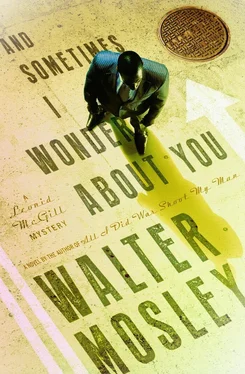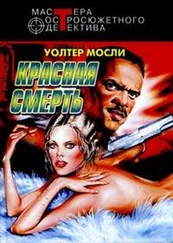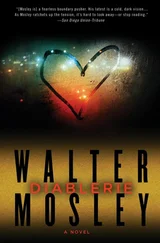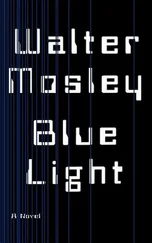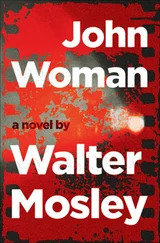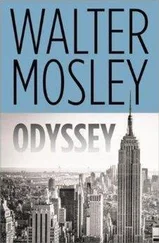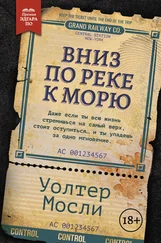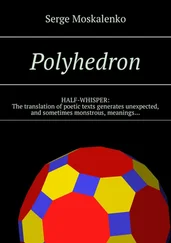Marella gasped and stood up. I wondered if I had somehow insulted her and now she was about to walk out.
She held out a hand to me. I took it and she pulled me from the booth.
At the front podium she told Monique that we’d be right back — in French.
Across the street from the restaurant there was a recess between a stationery store and bank. It was a dead-end alley blocked off at the mouth by a large locked plastic crate that was there to hold trash bins. This crate was maybe four feet high.
Marella pulled me until we were partially hidden by the receptacle container. She turned her back to me and lifted the flouncy red skirt. She wasn’t wearing anything underneath.
“I know you know what to do with that,” she said over her shoulder.
I did know and did not hesitate. There’s not nearly enough said about the smooth warmth of entering a woman without protection or worry. When she pressed back against me I noticed that she was clutching the same sacklike black satin bag she’d carried on the train. A sound erupted from us both simultaneously and I began to move with force that threw her against the wall more than once.
The sounds we made got louder over the seconds and minutes. At one point I glanced to my left and saw that a young couple had stopped to watch; a white man in a black suit and an Asian woman in a rainbow-glitter dress. I noted the couple but they didn’t matter to me.
“Harder, Lee,” Marella groaned.
I can’t remember any orgasm being stronger or more satisfying.
When it was over we put ourselves together and walked out from behind the big crate. The young couple was still standing there, still watching us. I wondered if they might take our place when we were gone.
On the way across the street back to the restaurant I checked my phone. I didn’t want to but there was too much going on. Nothing from Twill but there were eight messages from Zephyra; most of these about Coco Lombardi — most but not all.
Back in Chambre du Roi, Marella made a stop at the ladies’ room.
I spent the few minutes reading over the various texts and e-mails.
“That’s much better,” Marella said when she returned to our booth. “We needed to get that out of the way before being civilized.”
I suppressed the desire to tell her I loved her.
The waiter came, placing garlicky salads before us.
“It was my grandfather,” she told me.
“What?”
“My grandfather and I were close. That’s why I had to fuck you.”
“Who was this guy you were engaged to?” I asked.
“You jealous?”
“As if you were the only woman left in the world.”
“You don’t have to be,” she said instead of answering the question.
“What about that diamond?” I said. I wanted to feel businesslike and sophisticated because Marella was bringing out a beast in me.
“What about it?” Her smile was crazy-making.
“How much did you get for it?”
“Why so many questions, Lee? Isn’t this enough for you?”
“It’s just that I was wondering,” I said.
“About what?”
Neither of us had touched our salads.
“About how you could be so sloppy to have a thug like Alexander Lett get so close.”
Her smile faded when she said, “The less you know, the better.”
“But I know so much already.”
“Like what?” There was a hint of danger in her mien.
“You got engaged to the man somehow knowing that sooner or later he’d break it off,” I said.
“You’re a smart man, Mr. McGill.”
“No.”
“No?”
“I’m a fool. Otherwise I would have taken your money and ignored the fact of the three-point-six-million-dollar diamond you tricked out of Melbourne Westmount Ericson. There was an article about the engagement and the ring on the society page of the Washington Post. ”
“Oh my God,” she said with genuine surprise in her lovely, deadly eyes. “You really are a detective.”
“Yes,” I admitted as humbly as I could manage. “I know, for instance, that you have a gun in that bag, that Mr. Lett would have died, or at least he would have sustained serious injury, if he tried to take you. I was the less lethal alternate plan.”
“You’re the kind of man I like to take pictures with. The kind of pictures that drive fiancés mad.”
“You’re something else, Marella Herzog.”
“What are you going to do?” she asked, as if there was a choice I had.
“You got me in this now, Mar, I got to make sure the Ericson family steamroller don’t make me Pancake Lee.”
“There’s a lot of rage in you,” she said. It was true but I didn’t know where that fact fit in our conversation.
“Maybe.”
“I’m the kind of girl who can let a man express that rage any way he wants, anywhere he wants.”
“I can see that.”
“So what are you going to do?” she asked again.
“Eat my dinner. Drink my wine. Look at you and be happy. Then walk you home and try to get my mind in the place it needs to be.”
I surprised Marella Herzog — also known as Mona Briannan, Cassandra Massman, Thulia Lewes, and some other names by sources that Zephyra had forwarded to me. I surprised her not with the knowledge of her aliases but by kissing her on the cheek at the hotel entrance and saying good night.
“You’re not coming in?” she asked.
“Not tonight.”
“Why not? It’s late.”
“It’s a matter of self-preservation.”
“I don’t bite that hard.”
“As I told you, I have other business that cannot be ignored.” My overly formal reply had the desired effect.
She looked me in the eye for a long moment, nodded, and then said, “Okay,” like a confederate, or an accomplice.
I walked the thirty or so blocks back toward my empty apartment. I needed to be on the street to organize my thoughts. Like the table layout of Chambre du Roi, my mind was spiraling and off-center.
Marella was the event that had thrown me out of kilter though she wasn’t what bothered me. Hiram Stent and Josh Farth posed a mortal danger, but that was just business as usual now that I had taken up the dead man’s cause. It was Twill’s dilemma that concerned me most. He was down in a hole somewhere and I didn’t know if my arm was long enough to reach him.
At Broadway and Seventy-second at 11:47 I engaged Twill’s emergency line. He didn’t answer but twelve minutes and eight blocks later he called back.
“You kinda leanin’ on the emergency button, ain’t ya, Pops?” were his first words.
“I need you to come home,” I told him.
“In a few days.”
“Now.”
“Can’t right now.”
“Why not?”
“Tigers up in the garden and tigers down below,” he said paraphrasing his and my, and my father’s, favorite Nasrudin Sufi tale. It meant that any way he turned would mean his demise.
“That bad?” I asked.
“I’ll be home in seventy-two hours,” he said, and then he disconnected the call.
I was pressing the key into the downstairs lock of my apartment building door when he said, “Trot.”
Tolstoy wore light-colored trousers, a dark green T-shirt, and a tan windbreaker that was creased and stained. He was hatless, wore glasses, and was as unfamiliar to me as a father could be.
“I thought you was in the wind, man,” I told him.
“Never again.” He punctuated this solemn oath with a soldier’s abbreviated nod.
—
Back in the dining room, once again swilling cognac, my father and I faced each other across the hickory table.
“You should get over it,” he said to me.
“What’s that?”
“The rage you feel. The rage that drives you. You were an angry child and now you’re an angry man. It’s no good.”
Читать дальше
